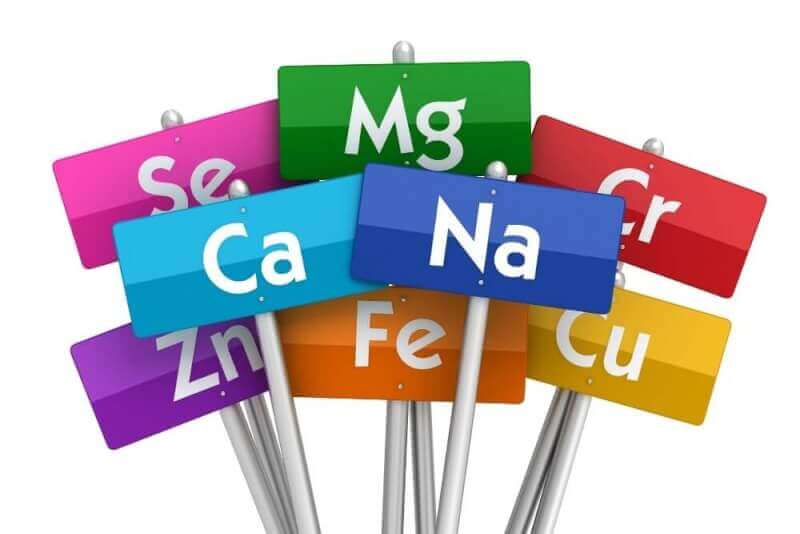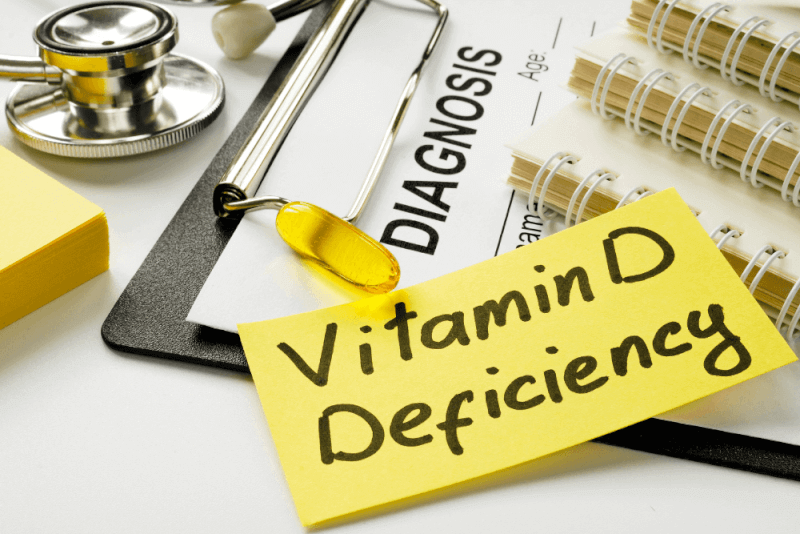What is a mineral?
One of the important nutrients in the human body is minerals. Minerals are inorganic substances and differ in this respect from vitamins, which contain carbon elements. Minerals are found in all tissues in the body.
Types of minerals
There are 13 different minerals involved in various processes in the body. Some of these are classified as micro and some as macro.
Micro
Micro minerals, also called trace minerals, are found in small amounts in the body. Excessive intake of these minerals, which should be present in small amounts in the body, causes mineral toxicity.
Iron
In order for the metabolism to continue to function in a healthy way, iron mineral is especially involved in red blood cells.
Only 35% of the iron taken in through food can be absorbed from the intestines. For this reason, it is necessary to take much more iron than the daily need with the foods consumed.
Iron mineral, which is part of the protein that transports oxygen from the lungs to the tissues, has the following functions in the body.
- Providing oxygen to the muscles
- Cell growth
- Cell development
- Maintenance of normal body functions
- Helps in the production of hormones
- Helps build connective tissue
- Energy production
- Energy storage
Iron deficiency
Insufficient iron in the body basically causes anemia.
This leads to cell death. Apart from this, the complaints that can be seen in case of iron deficiency include the following.
- Extreme fatigue and weakness
- Loss of appetite
- Pale skin color
- Restless leg syndrome
- Shortness of breath
- Bruising
- Increased heart rate
- Heart palpitations
- Hair loss
- Cooling of the hands and feet
- Strange food cravings
- Dizziness
- Loss of balance
- Tingling in hands and feet
- Difficulty focusing
- Tinnitus
- Inflammation of the mouth and tongue
Iron-rich foods
Foods rich in iron include the following.
- Beef
- Liver
- Beans
- Hazelnut
- Dried fruits
- Whole grains
- Fortified breakfast cereals
- Dark green leafy vegetables such as lettuce and cabbage
Zinc
It is the most important mineral after iron, which ensures the healthy functioning of tissues and organs in the body.
The mineral zinc is found in bones, muscles, hair and skin. The functions of zinc in the body include the following.
- Growth and development
- DNA synthesis
- Tissue formation
- Reproductive function
- Neuro-behavioral developments
- Secretion of enzymes
- Supporting the immune system
The benefits of having enough zinc in the body include the following.
- Reduces the risk of developing chronic diseases
- Prevents diseases such as Alzheimer's
- Strengthens the immune system.
- Used in the treatment of rheumatoid arthritis
- Helps prevent age-related diseases
- Prevents hair loss
- Accelerates wound healing
- Prevents skin problems
Zinc deficiency
Symptoms that can be seen in case there is not enough zinc in the body include the following.
- Persistent recurrence of the flu
- Delayed healing of wounds
- Hair loss
- Non-excretable edema
- Loss of appetite
- Infertility
- Miscarriage during pregnancy
- Acne
- Dry skin
- Low testosterone production in men
- Cognitive dysfunction in children
- Behavioral disorders in children
- Growth retardation
- Impaired taste and smell
Which foods contain zinc?
Foods rich in zinc include the following.
- Shellfish
- Red meat
- Milk and dairy products
- Grain products
Copper
Copper, one of the minerals that are extremely important for the body, ensures that the metabolism continues in a healthy way. Copper deficiency in the body causes health problems that will negatively affect the quality of life, especially in advanced ages.
Copper is a mineral that enables the absorption of iron in food from the intestines. For this reason, it ensures that iron levels remain normal. In addition, the functions of zinc in the body include the following.
- ATP production
- Maintaining a healthy immune system
- Production of white blood cells
- Strengthening of bones
- Maintaining optimal brain function
- Helps the brain's defense system
- Used by signal transducing enzymes
- Protection of the nervous system
- Maintaining optimal health of the spinal cord
- Ensures healthy production of thyroid hormone
- Involved in melanin production
- Involved in the visual nervous system
Copper deficiency
Among the health problems that can be seen in people with copper deficiency are the following.
- Fatigue and weakness
- Iron deficiency
- Weakening of the immune system
- Weakening of bone tissue
- Osteoporosis
- Memory loss
- Learning problems
- Lack of fitness
- Unsteadiness when walking
- Constant chills
- Pale skin
- Early graying of hair
- Loss of vision
Foods rich in zinc
Foods rich in zinc include the following.
- Peas
- Hazelnut
- Olive
- Beans
- Walnut
- Lamb liver
- Almond
- Orange
- Almond
- Bal
- Grape
- Molasses
- Barley
- Beetroot
- Brown bread
- Broccoli
Selenium
As with other minerals, selenium, which the body cannot produce on its own, is the most important mineral involved in DNA production.
Among the functions of selenium in the body are the following.
- Supports reproductive health
- Supports thyroid health
- Helps the metabolism to work healthily
- Protects from oxidative cell damage
- Protects against infections
- Supports the immune system
- Reduces cancer risk
- Prevents mental decline
- Protects against heart disease
Selenium deficiency
Among the health problems that can be seen if selenium is not present in sufficient amounts are the following.
- Immune system problems
- Fatigue
- Fatigue
- Hair loss
- Difficulty concentrating
- Infertility
- Muscle weakness
- Blurred consciousness
- Depression
- Anxiety
- The emergence of thyroid problems
In addition to this problem, there are some diseases caused by selenium deficiency. These diseases include the following.
- Addison's disease
- Thyroid lymphoma
- Anemia
- Nutritional cardiomyopathy
- Ovulation disorder
- Hypothyroidism
- Autoimmune thyroid disease
- Goiter
- Cardiac tamponade
- Decreased thyroid hormone
- Constipation
Selenium-rich foods
Foods rich in selenium include the following.
- Spinach
- Green peas
- Broccoli
- Potato
- Turkey
- Red meat
- Chicken
- Fish
- Seafood
- Dry beans
- Lentil
- Brown rice
- Brazil nuts
- Sunflower seeds
- Milk and dairy products
- Egg
- Grains
- Whole wheat bread
Iodine
Iodine, the most important mineral for the production of thyroid hormones, cannot be produced by the body.
For this reason, it must be taken with food. Among the functions of iodine in the body are the following.
- Ensures proper functioning of the thyroid gland
- Enables the body to use energy
- Supports the baby's bone and brain development during pregnancy
Iodine deficiency
In case of iodine deficiency, the following are among the health problems that can be seen in people.
- Enlarged thyroid glands and goiter
- Difficulty swallowing
- Fatigue
- Fatigue
- Hyperlipidemia
- Thinning on the right
- Coldness of the skin
- Chills
- Skin dryness
- Depression
- Weight gain
- Depression
- Choking sensation
- Headache
- Hoarseness
- Menstrual problems
If iodine deficiency causes thyroid problems, the following are among the diseases that can be seen in people.
- Thyroid cancer
- Menstrual irregularities
- Breast cancer
- Fibrocystic breast problem
- Difficulty losing weight
- Hyperactivity
- Low fertility rate
- Muscle weakness
- Arteriosclerosis
Foods rich in iodine
Foods rich in iodine include the following.
- Garlic zucchini
- Turnip
- Spinach
- Strawberry
- Morino fish
- Whiting
- Tuna fish
- Shellfish
- Moss
- Milk products
Manganese
Manganese, one of the essential microelements for all living things, is involved in the activation of some enzymes.
In addition, the functions of manganese in the body include the following.
- Calcium absorption
- Blood sugar regulation
- Fat metabolism
- Carbohydrate metabolism
- Bone formation
- Formation of sex hormones
- Formation of connective tissues
- Protein metabolism
- Enzymes cannot act in manganese deficiency
- Lipid synthesis
- Collagen synthesis
- Nails and hair are more durable
- Protection against oxidative stress
- Protection against aging
Manganese deficiency
Manganese deficiency is a rare condition. However, if it happens, it can cause serious health problems.
These problems include the following.
- High blood pressure
- Muscle tension
- Bone deformation
- High cholesterol
- Vision problems
- Hearing loss
- Severe memory loss
- Tremor
Among the diseases that can be seen in manganese deficiency are the following.
- Blood clotting problems
- Loss of hair pigmentation
- Decreased antibody formation
- Disruption of muscle cell nerve impulse transmission
- Decline in sex production
- Growth delays
- Declining fertility
- Weakened immune system
- Epilepsy
- Schizophrenia
Foods rich in manganese
Foods rich in manganese include the following.
- Black tea
- Green leafy vegetables
- Blueberries
- Coconut
- Banana
- Cranberry
- Parsley
- Soya
- Brussels sprouts
- Hazelnut
- Walnut
- Almond
- Peanuts
- Kaju
- Wheat
- Oatmeal
- Egg
- Liver
- Chicken liver
Sulfur
Sulfur, which ranks eighth in prevalence in the body, is divided into methionine and cysteine.
Both play fundamental physiological roles in the body. Other functions of sulfur, which has antibacterial properties, include the following.
- Fights acne-causing bacteria
- Repairs DNA damage
- Healthy functioning of the respiratory system
- Brain functioning
- Hair, nail and skin health
- Healthy liver functioning
- Increasing bile secretions
- It is involved in the absorption of B vitamins.
- Prevention of signs of aging
- Regulation of the amount of oxygen in the blood
Sulfur deficiency
Sulfur deficiency is a rare condition. Among the health problems that can be seen in case of sulfur deficiency are the following.
- Hair weakness
- Dullness of the skin
Foods rich in sulfur
Foods rich in sulfur include the following.
- Red meat
- Chicken
- Fish meat
- Egg
- Carrot
- Onion
- Garlic
- Celery
- Radish
- Cabbage
- Spinach
- Strawberry
- Banana
- Parsley
- Lettuce
- Potato
- Fig
- Dates
Macro
Macro minerals are present in relatively higher amounts in the body. They are therefore the main minerals. The minerals in this group are vital for the proper functioning of the body and for maintaining a healthy metabolism.
In addition, macro minerals cannot be produced by the body and must be taken from outside. Therefore, inadequate macro mineral deficiency causes serious health problems.
Chromium
Foods rich in chromium include the following.
- Red meat
- Poultry
- Fish
- Hazelnut
- Cheese
Calcium
Compared to other minerals, calcium is the most abundant mineral in the body. It is especially high in teeth and bones. A significant portion of the calcium taken in with food is stored in these areas. In addition, among the tasks that calcium undertakes in the body are the following.
- Sending messages through the nervous system to make muscles and blood vessels contract and relax requires calcium.
- It helps the release of hormones and enzymes.
- It is involved in the blood clotting process.
- It is effective in regulating metabolism.
Calcium deficiency
Among the problems that can be seen in people with calcium deficiency are the following.
- Bones and teeth become more fragile
- Muscle pain and cramps in the back and legs
- Heart rhythm disturbance
- Confusion and memory problems
- Irritability and restlessness
- Numbness and tingling in the hands and feet
- Depression and mood swings
- Tooth decay
- Vision problems
- Cataract
- Skin dryness and flaking
- Having trouble sleeping
- Weakness and brittleness of nails
- Eczema
- Sedef
- Hallucinations
- Low energy
- Fatigue
- Pain before menstruation
Foods rich in calcium
Foods rich in calcium include the following.
- Milk products
- Green leafy vegetables such as broccoli and cabbage
- Fortified soy products
- Fortified cereals
- Fish that can be eaten with their bones, such as anchovies and sardines
Phosphorus
Phosphorus, which is translucent and white in nature, is one of the minerals that are extremely important for human health. After calcium, it is the most abundant mineral in the body.
Phosphorus generally works together with vitamin D and calcium. Most phosphorus is found in bones and teeth.
It is also found in soft tissues and extracellular fluids. Apart from this, the functions of phosphorus in the body include the following.
- Participate in the structure of molecules such as DNA, RNA and ATP
- Contributes to bone mineralization
- Involved in intracellular signaling
- Provides transportation of oxygen in the blood and acid-base ratio
- Maintains the integrity of the cell membrane
- Regulates blood pressure
- Regulates the water content in cells
- Those who filter the heart rhythm
- Helps digestion
- Supports brain health
Phosphorus deficiency
Among the health problems that can be seen if there is not enough phosphorus in the body are the following.
- Bone softening
- Nausea
- Vomiting
- Decreased platelet count
- Muscle weakness and numbness
- Destruction of erythrocyte cells
- Destruction of skeletal muscles into the bloodstream
- Decreased function of leukocytes, thrombocytes and erythrocyte cells
- Weakening of the respiratory muscles
- Respiratory depression
Foods rich in phosphorus
Foods rich in phosphorus include the following.
- Milk and dairy products
- Red meat
- Egg
- Fish
- Legumes
- Dates
- Sweet potato
- Avocado
- Beetroot
- Shelled nuts
- Grainy vegetables such as beans and peas
- Green leafy vegetables
- Corn flakes
- Acidic drinks
- Additional substances used in industry to extend shelf life can be completely absorbed from the intestines.
Magnesium
The 4 most abundant in the body. Magnesium, a mineral, is taken in through food and absorbed in the small intestine.
More than half of magnesium is found in teeth and bones. The rest is found in soft tissue. Only 1% of magnesium is in the blood.
Magnesium types
There are different types of magnesium in the body.
- The best type for the body to use is magnesium glycinate.
- It is magnesium malate, which is the form bound to malic acid.
- The combined form of magnesium and taurine is magnesium N- Acetyl theurinate.
- Magnesium citrate has a bioavailability of 30%. If there is too much in the body, it causes diarrhea.
- The least bioavailable type of magnesium is magnesium oxide.
- The type of magnesium used to treat constipation is magnesium hydroxide.
- Magnesium sulfate is the type used especially in the treatment of muscle-related problems.
- The type of magnesium that has the ability to cross the blood brain barrier is magnesium l-threonate.
Functions of magnesium
Magnesium takes on many different tasks in the body. These tasks include the following.
- Energy production
- Protein synthesis
- Regulation of the nervous and muscular system
- Stabilization of blood sugar levels
- Heart health
- Prevents migraine headaches
- Suppresses the symptoms of PMS syndrome
- Reduces stress and depression.
- Prevents sleep disorders
- Prevents muscle cramps
- Prevents constipation
- Strengthens memory
Which foods contain magnesium?
Foods rich in magnesium include the following.
- Spinach
- Broccoli
- Legumes
- Nuts
- Whole wheat
Sodium
Sodium is involved in maintaining the volume of extracellular fluid, thus supporting blood volume and pressure.
Sodium, one of the most common minerals in the human body, can be absorbed from foods containing salt.
Basically, it provides acid-base balance in the body. In addition, the functions of sodium in the body include the following.
- Works with potassium to regulate the intracellular and extracellular movement of water
- Strengthens the cell wall
- Strengthens bones
- Transmit nerve impulses to neurons in the brain
- Regulation of blood pressure
Sodium deficiency
In case of deficiency of sodium mineral, the following are among the complaints that can be seen in people.
- Decrease in blood pressure
- Nausea
- Watch
- Vomiting
- Koma
- Muscle spasms
- Aggression
- Headache
- Low energy
- Blurred consciousness
Chloride
Chlorine, one of the minerals that maintains fluid balance in the body, is a negatively charged molecule.
It is mainly found in blood and extracellular fluids. The functions of chloride in the body include the following.
- Formation of stomach acid
- Maintaining electrical neutrality in the body
- Maintenance of blood pressure
- Maintenance of blood volume
- Maintaining pH
Chloride deficiency
Among the health complaints that can be seen in case of chlorine deficiency are the following.
- Vomiting
- Diarrhea
- Loss of fluid in the body
- Difficulty breathing
- Fatigue
- Fatigue
Foods rich in chloride
Foods rich in chloride include the following.
- Table salt
- Tomato
- Celery
- Lettuce
Potassium
Potassium, a mineral active in water, loses its properties when it comes into contact with air. Almost all of the potassium taken in through food is found inside the cell.
Muscle cells make up 80% of these cells. The rest is located in the liver, bone and skeletal muscles.
The functions of potassium in the body include the following.
- Cell division
- DNA synthesis
- Heart function
- Stabilization of blood pressure
- Regulation of reflexes
- Normal functioning of the heart
- Prevention of edema formation
- Acid base balance
- Fluid-electrolyte balance
Potassium deficiency
Among the health problems that can be seen in case of potassium deficiency in people are the following.
- Irregular heartbeat
- Hypertension
- Digestive system disorders
- Dehydration
- Frequent urination
- Vomiting
- Breathing difficulties
- Nausea
- Muscle weakness
- Fatigue
- Myalgia
- Cramps in the leg and arm muscles
- Fatigue
Foods rich in potassium
Foods rich in potassium include the following.
- Fruits, especially bananas
- Some vegetables such as parsnips, broccoli and Brussels sprouts
- Pulses
- Nuts
- Fish
- Shellfish
- Red meat
- Milk and dairy products
- Grains







